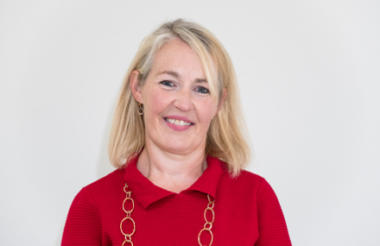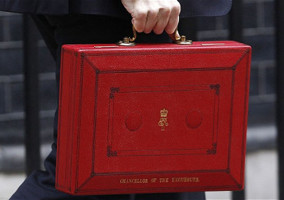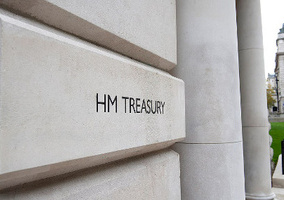The UK's budget for overseas aid could return to 0.7% of the UK’s Gross National Income (GNI) in 2024-25, but one charity described this as a “betrayal” and another said it “simply isn't good enough”.
As part of yesterday's budget speech Rishi Sunak, the chancellor of the exchequer, said he hoped the government spending on overseas aid could return to 0.7% earlier than previously expected.
The budget was reduced to 0.5% in November 2020. This was the first time since 2013 that the UK did not meet the United Nations recommended target of spending 0.7% of GNI on Official Development Assistance (ODA). At the time the government said that the cut was to “support public finances” following the unprecedented costs of the Covid-19 pandemic.
Yesterday's budget and spending review stated “that the UK will remain a development superpower and one of the largest official development assistance (ODA) donors in the G7, spending the equivalent of 0.5% of its national income as overseas aid in 2022”.
It went on to say that the fiscal tests to return the UK's contribution to 0.7% of GNI are now forecast to be met in 2024-25. If this forecast is met, there will be £2bn more a year for overseas developmental charities and community groups in 2024-25.
The chancellor continued: “The ODA allocated to departments at SR21 will ensure that the UK continues to demonstrate leadership on the biggest challenges facing the world, including support for women and girls, global health, humanitarian response, and tackling climate change.”
However, international development charities, which have seen funding slashed in recent months said this was not good enough.
Plan International UK: 'Budget fails world's women and girls as overseas aid cuts hit hard'
Plan International UK, which focuses on children’s rights and equality for girls, has accused the government of failing “the world’s women and girls”.
Rose Caldwell, chief executive of Plan International UK, said: “Returning to the 0.7% aid commitment in 2024-25 simply isn’t good enough, and there is no guarantee it will happen. It’s welcome news that the UK economy is recovering, but the world’s women and girls need our full support now, not in three years’ time. By then, cuts to overseas aid will have done untold damage.
“The government has already cut global education funding by 30%, impacting more than a million children. Similarly, aid for sexual and reproductive health has been cut by 85% - a decision that is expected to result in 8,000 more maternal deaths and 1.4 million more unsafe abortions in this fiscal year.
“On top of this, the government’s reported plans to count The International Monetary Fund (IMF) and write off debt relief against the aid commitment are effectively under-the-table cuts. They will mean even less money for critical areas such as girls’ education and family planning.
“The Treasury should urgently reconsider these decisions and prioritise an immediate return to the 0.7% of GNI manifesto commitment. Until that happens, the government must prioritise women and girls in its spending decisions on overseas aid.”
Bond: 'Balancing the books on the backs of the poorest'
Bond, the UK network for non-governmental organisations, has also criticised the government’s decision to maintain the cut to foreign aid until 2024-5.
Stephanie Draper, CEO of Bond, said: “Despite the chancellor’s commitment to get back to 0.7% of GNI spent on UK aid in 2024, what matters is what the Treasury is doing to ensure that the UK shows up in the world right now.”
Draper continued: “It now looks certain that the Treasury will use accountancy trickery to make the aid budget pay for re-channelling Special Drawing Rights (SDRs), excess vaccine doses and debt relief, so the government is once again balancing the books on the backs of the poorest and jeopardising trust in the UK around the world. There will be even less funding for humanitarian and development programmes and potentially a third round of cuts to life saving work.”
Elsewhere the chancellor has been accused by former Conservative international development secretaries of using the IMF fund as part of the foreign aid budget, meaning the government will “save billions”. By increasing funds to the IMF but reducing the amount of GNI donated, total aid to developing countries will be reduced.
Draper also emphasised public support for international development charities.
“With such strong messages about the strength of our economy, it’s sad that the chancellor can’t be as generous as the British public towards those suffering the most from the pandemic and climate change. This makes the UK’s standing in addressing global inequality even more questionable,” she said.
Christian Aid: 'A betrayal of the world’s most marginalised people'
Similarly, Christian Aid called on the chancellor to “restore the UK aid budget today”. The humanitarian relief charity also expressed disdain at the government’s decision to accrue the UK’s vaccine contribution and SDR’s to the aid budget.
Jennifer Larbie, the UK advocacy and policy lead at Christian Aid, said: “By eroding the real value of UK aid, this budget represents a betrayal of the world’s most marginalised people. Designating the UK’s vaccine contribution and IMF Special Drawing Rights as contributions to a shrinking aid budget will cut billions from the UK’s effort to tackle poverty. Whether rules allow it or not, other countries aren’t sinking to this kind of creative accounting.”
Though Sunak said that the return to 0.7% – if fiscal forecasts are met – will tackle climate change, Larbie said that people in “developing countries are already battling the climate crisis”.
“In South Sudan, unrelenting floods are sweeping away homes and crops, and forcing countless families to flee. This is not the time to be further cutting the UK’s aid budget.”
Larbie stressed that nothing has been confirmed, and follows a broken commitment. She said: “Today’s budget only commits to reinstating, three years from now, a commitment to aid the chancellor himself broke. No ifs and no buts, the UK’s global aid budget must be restored today. That is the commitment people on the brink of famine and humanitarian disaster need.”
Related articles











